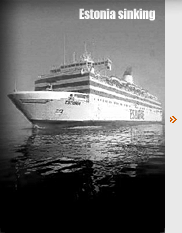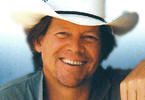
|

|

|

|

|
 9-11 Archive 2002
9-11 Archive 2002 The Death of a Senator and 9-11: The Uncanny Connections
The Death of a Senator and 9-11: The Uncanny Connections 

The Death of a Senator and 9-11: The Uncanny ConnectionsNovember 1, 2002 The untimely death of Minnesota's populist senator in a suspicious plane crash 11 days before Election Day reveals several bizarre and uncanny connections to 9/11. The mysterious plane crash that took the life of U.S. Sen. Paul Wellstone, the populist Democrat from Minnesota known for his opposition to waging war in Iraq, immediately raised suspicions of foul play in the North Star state. A poster hanging in Minneapolis asked: "Who killed Paul Wellstone?" Since the crash, uncanny links have surfaced connecting the World Trade Center attack, the co-pilot of Wellstone's plane, and the "elite" FBI Evidence Response Team that investigated the wreck. On Friday, October 25, the plane carrying the incumbent Sen. Wellstone, his wife, daughter, and three campaign workers, crashed into the woods after veering 2 miles off course on its approach to the Eveleth-Virginia municipal airport in the remoteness of the Iron Range north of Duluth, Minnesota. Eleven days before the election Wellstone was reported to be leading 47-41 in the polls and gaining over his Republican challenger, Norm Coleman. There has been no explanation given for why the chartered twin engine Beech King Air A100 with a pilot and a co-pilot, veered sharply to the south as it approached the runway from the east. Although the plane was carrying a U.S. senator, it had neither a cockpit voice nor a flight data recorder. At 10:22 in the morning, as the King Air A100 approached Eveleth airport, visibility was between 3 and 4.5 miles with overcast cloud ceiling at 700 feet. Winds were calm and the temperature was 1-2 degrees C. There was light snow falling but flying conditions were generally good, according to local pilots. I spoke with Gary Ulman, professional pilot and assistant manager of the Eveleth airport. Ulman heard radio reports that a plane was missing and took off about 10:55 to look. He said that while he saw "light bluish-grayish smoke" coming up from the trees 2.1 miles south of the airport, he didn't think that it could be the plane because "that was way too far off course." I asked Ulman several times to clarify the color of the smoke because his description of "light blue" smoke coming from the crash site is different from the expected thick black smoke that is usually seen coming from fires in which aviation fuel is the primary substance burning. Ulman flew over the smoke and said that he saw a "hot and intense fire" consuming the plane's fuselage on the ground. He returned to the airport and took the local fire chief up to survey the crash site and determine how to access the wreck from the ground. Ulman said that on this flight, at about 11:15 a.m., he saw that the burning fuselage had nearly "disintegrated." The plane's tail and wings had been detached from the body of the plane, he said. It is important to note that the King Air's fuel tanks are located in the wings of the plane; there is no fuel tank in the fuselage. While some reports suggested that icing on the plane caused the crash, Ulman and other pilots doubt that ice played a role. Frank Matthews, a local pilot, said that the King Air is "a great all weather plane" that has "an outstanding safety record." Ulman said that if icing were a factor it would have caused problems at least 10 minutes earlier as the plane descended from 14,000 feet. FAA spokeswoman, Elizabeth Isham Cory, said there didn't appear to be any sign of distress coming from the plane's crew on its final approach to the airport. I spoke with Rick Wahlberg, sheriff of St. Louis County, who said that local police and FBI agents reached the remote crash site "at about 12" [noon]. Paul McCabe, special agent and spokesman for the FBI's Minneapolis division, told me that the FBI's Evidence Response Team (ERT) drove to the site from the Twin Cities and arrived at the crash scene about 3 p.m. on Oct. 25. McCabe said that the FBI was treating the site as a "crime scene" but that there were "no indications of any criminal activity" causing the crash. The ERT worked at the scene all day before a team of National Traffic Safety Board (NTSB) investigators arrived from Washington that night. Agents from the FBI's Minneapolis Evidence Response Team have been accused of stealing evidence from the site of the World Trade Center, where they had been sent to investigate. The stolen evidence was a valuable Tiffany crystal paperweight taken from a WTC evidence bag. FBI agent Jane Turner, assigned to the Minneapolis field office, reported the suspected theft. Turner decided to blow the whistle after FBI officials declined to investigate the matter. Turner first wrote Inspector General Glenn Fine on the anniversary of the Sept. 11 attacks that an elite FBI "evidence response team" from Minneapolis may have stolen a Tiffany crystal globe from the ruins of the World Trade Center. She said she spotted the globe, worth more than $5,000, sitting on a secretary's desk. Citing the ongoing investigation of her allegations, FBI officials have declined to discuss the circumstances under which the globe was taken or to explain why an allegedly stolen item would be displayed so prominently in a law enforcement office. Turner, a 24-year FBI veteran, was investigating a company in the theft of several items from ground zero when she discovered that Minneapolis agents assigned to an Evidence Response Team (ERT) at the World Trade Center had taken the globe. "The ERT is supposed to secure and collect evidence at a crime scene. Their job is to preserve the integrity of a crime scene, not take from it and disrupt it," Sen. Charles E. Grassley of Iowa, said about the accusations, which he said had been referred to the Justice Department's Office of Inspector General. "I think it's outrageous," Grassley said. "Maybe some people who work at these scenes think that taking something is OK, like it's a trophy for their hard work. "This makes me wonder what else these agents stole, if they were generous enough to give an expensive crystal globe to a secretary," he said. Turner is the second Minneapolis agent to accuse bureau personnel of wrongdoing. Earlier this year, FBI Agent Coleen Rowley accused officials at FBI headquarters of mishandling information developed in Minneapolis concerning 9-11 suspect Zacharias Moussaoui. The FBI has since taken steps toward firing Turner. Turner, a 24-year veteran, has been on probation for much of the last year and was recently told during a job evaluation that her performance is "not acceptable." Grassley said the action "looks like retaliation against a whistle-blower who followed her conscience and exposed wrongdoing, even though it embarrassed the FBI. If there are plans to fire her, the FBI is making a big mistake, and I want the people behind this retaliation held accountable." "PROGRESSIVE POPULIST" Wellstone, described as "the most progressive populist in the Senate" had recently voted against giving President George W. Bush's "flexibility" to attack Iraq. Wellstone also opposed U.S. military action in Iraq in 1990. Wellstone was the only Democrat senator who was running for re-election to vote against the recent war resolution. Wellstone's opposition to the war had given him a boost in the polls. The headline of the Minneapolis Star-Tribune on the Sunday before he died read: "Wellstone edges into lead in U.S. Senate race." The paper's latest poll had found the two-term liberal Democratic senator to be leading by a 47-41 margin. The White House had recruited former St. Paul mayor Norm Coleman to run against Wellstone. "Republicans made ousting Wellstone a priority because of his vocal opposition to most of what George W. Bush stands for," the Center for Voting and Democracy said in July. The senate race in Minnesota was seen as crucial for the White House. Bush's political director Karl Rove is said to have personally selected Coleman to challenge Wellstone in the November 5 election. Bush and Vice President Dick Cheney frequently visited Minnesota to support Coleman. A mysterious Alexandria, Virginia-based outfit, calling itself Americans for Job Security (AJS), with ties to big business and the Republican congressional leadership had spent more than $1 million on an anti-Wellstone ad campaign in Minnesota before the election. AJS has a record of intervening in close political races around the country on behalf of conservative candidates. The organization, headed by Michael Dubke, was founded with $1 million from the American Insurance Association. In order to maintain the secrecy of its donors, AJS is registered as a "nonpolitical trade organization." Dubke said there is no contradiction between the group's ads and its nonpolitical legal status. He said AJS, which had advertised against Wellstone since June, had no desire to influence the outcome of the Minnesota race. Asked by the Star-Tribune whether the anti-Wellstone commercials were "intended to influence the election," Dubke replied, "Absolutely not." Fred Wertheimer, president of Democracy 21, which advocates campaign finance changes, said it is "dead wrong to spend large amounts of money in elections and refuse to disclose where it's coming from." MOUSSAOUI & THE CO-PILOT The co-pilot who flew with Wellstone had known Zacharias Moussaoui, the accused Sept. 11 conspirator who had attended an Eagan (Minn.) flight school. Co-pilot Michael Guess, 30, had met the flying student Moussaoui at the Pan Am International Flight Academy where Guess worked last year. Guess had reportedly "inadvertently" given Moussaoui unattended access to a computer program on flying a 747 jumbo jet. An ex-manager of Pan Am told the FBI that Guess had placed a CD-ROM containing the 747 software at a workstation before one of Moussaoui's training sessions. After Moussaoui was arrested, the FBI searched his belongings and found the proprietary program copied on his laptop computer, the ex-manager said. Guess had recently been laid off at the flight academy, where he had hoped to become a flight instructor. "At Executive Aviation in Eden Prairie, where Guess had been employed as a pilot since June 2001, a spokesman said colleagues remembered Guess telling them he had played a more significant role regarding the suspicions concerning Moussaoui," the Star Tribune reported. Dave Mona, a spokesman for Executive Aviation, said Guess' colleagues had said HE had described himself as "at least a role player" in the detection of Moussaoui. Mona said Guess had told his colleagues that "he and the receptionist . . . thought what [Moussaoui] was requesting was unusual" and had raised the issue with others.
|
©2010 Christopher Bollyn | Sitemap | [email protected]

